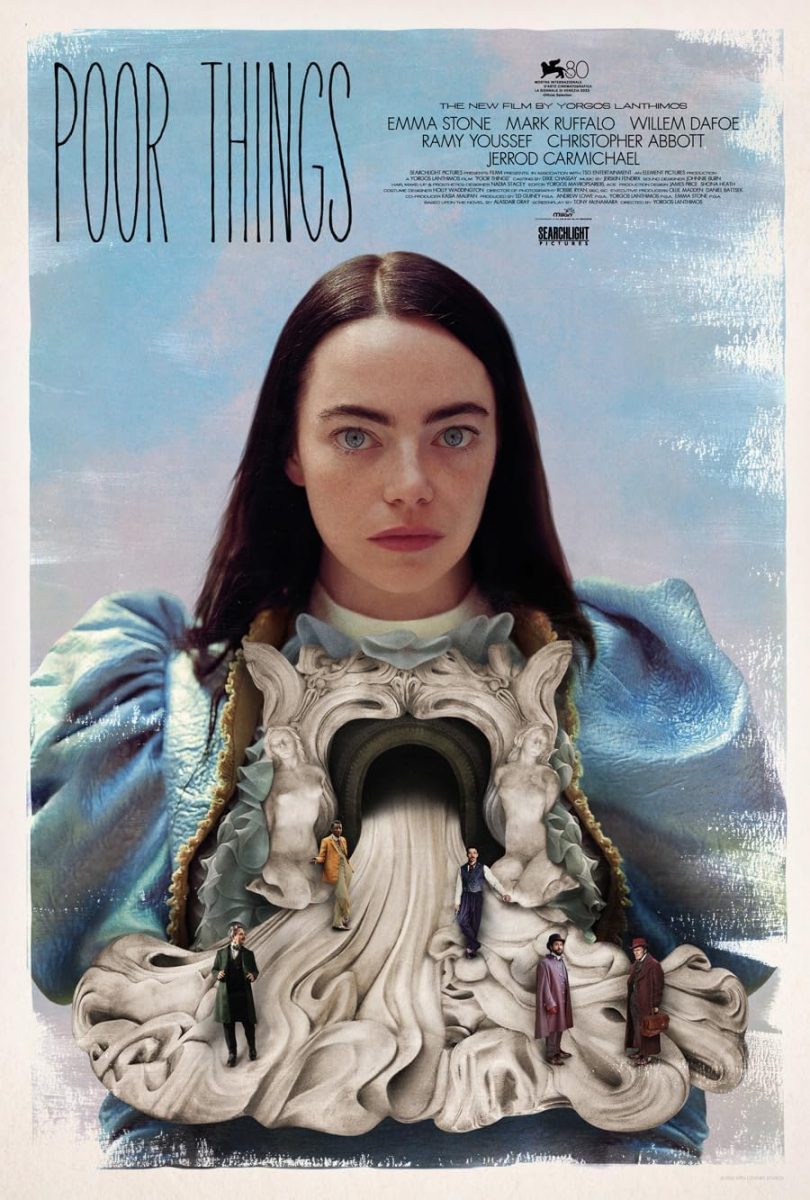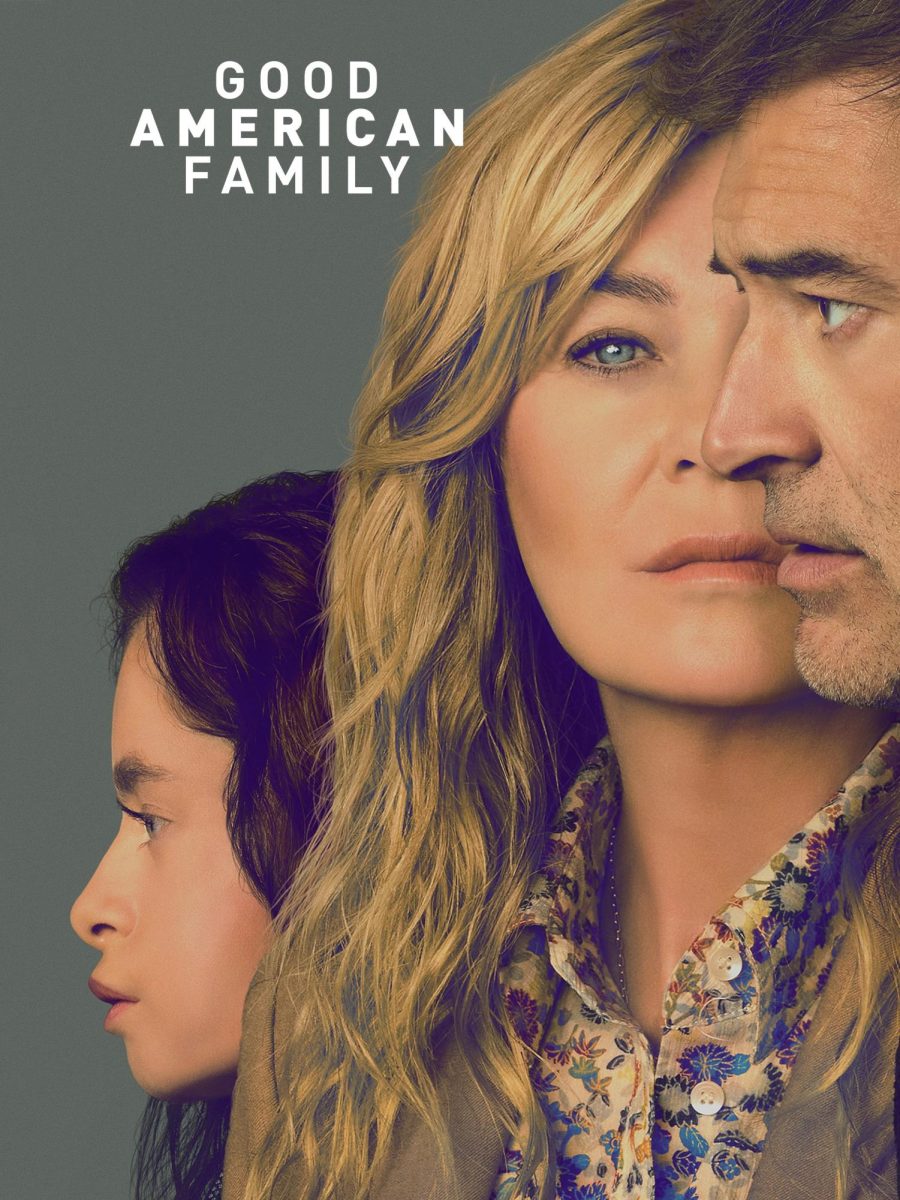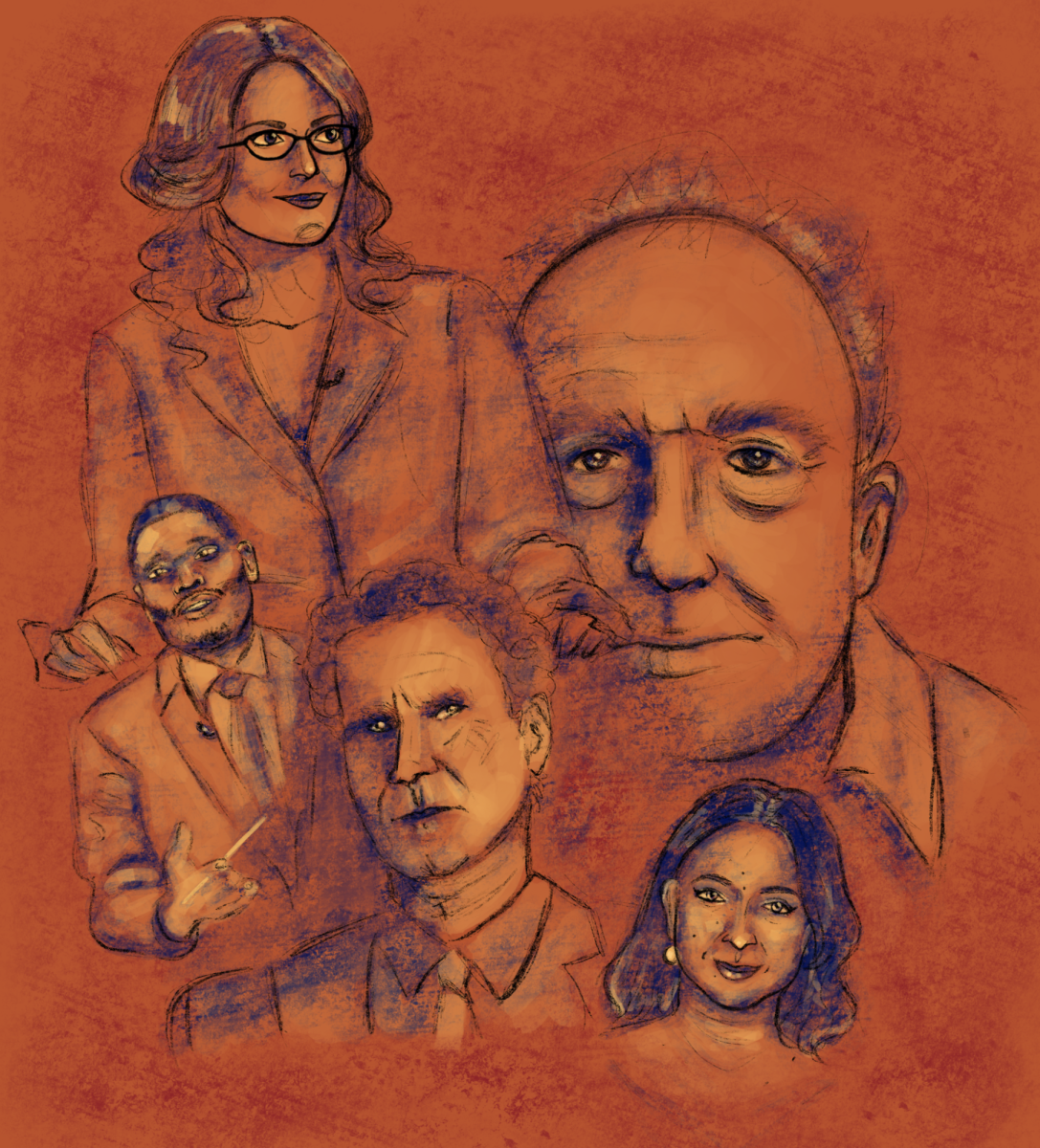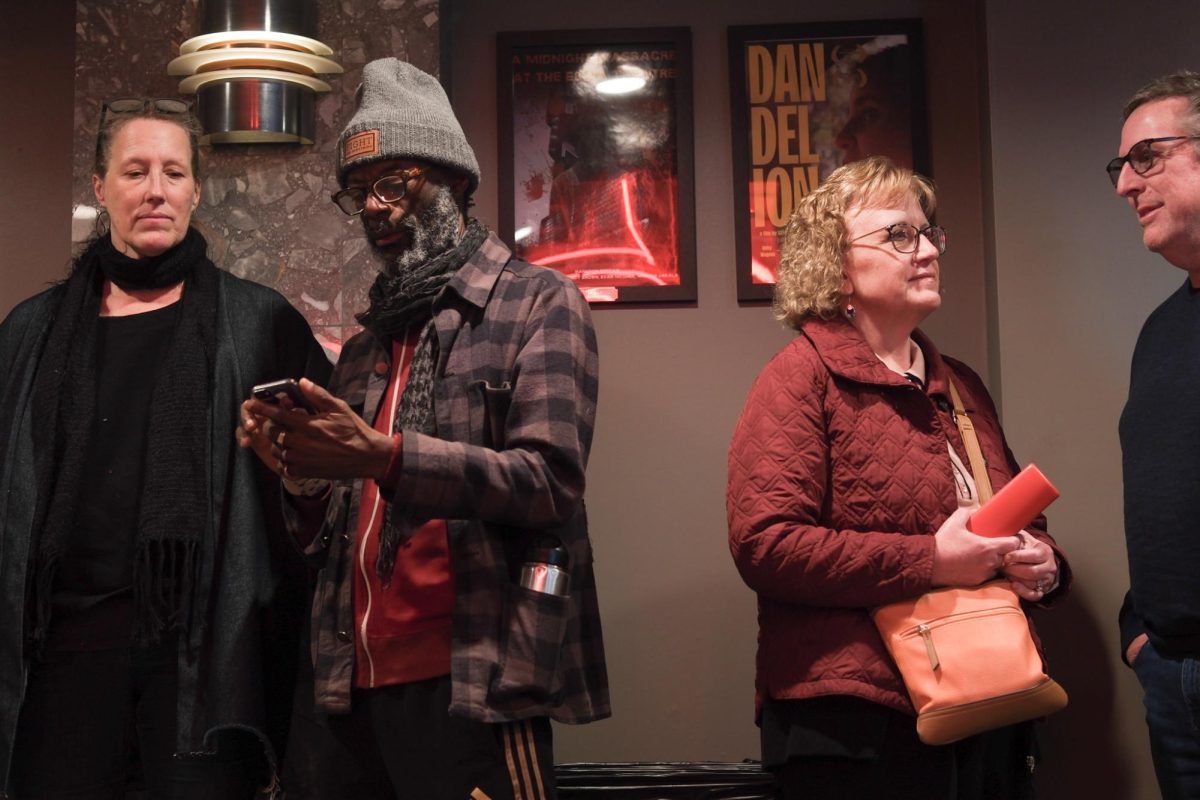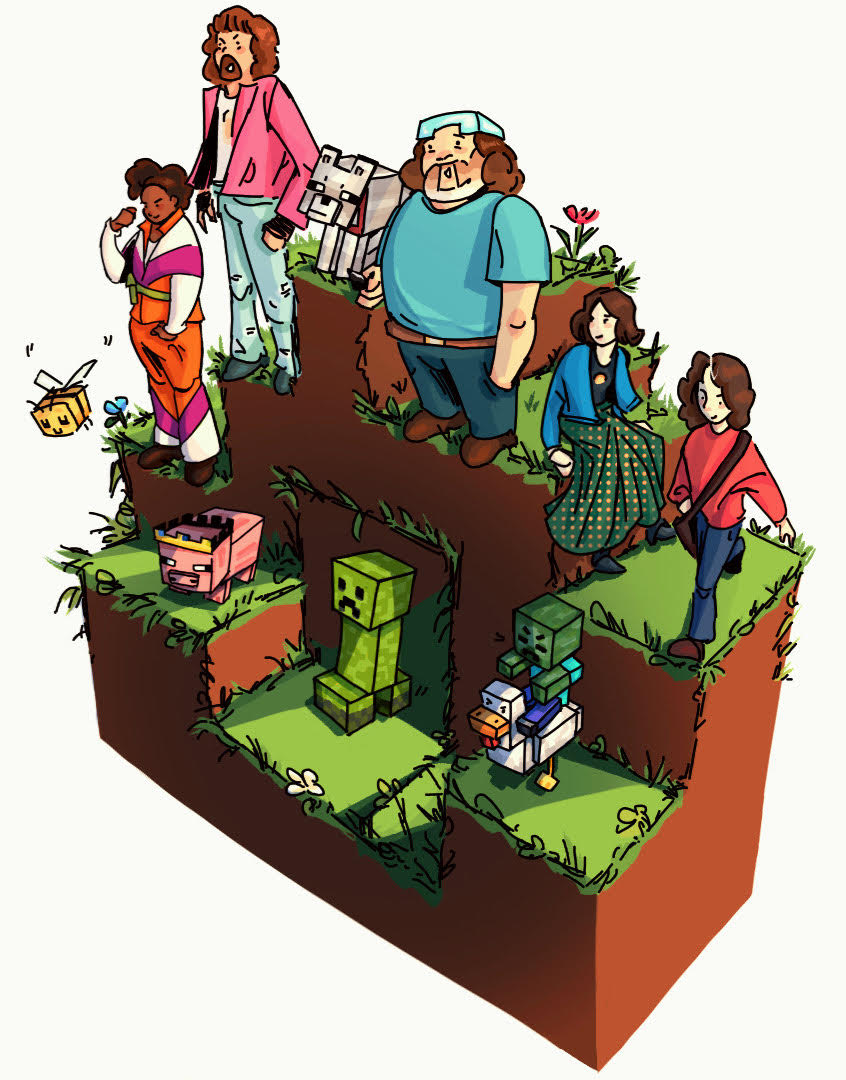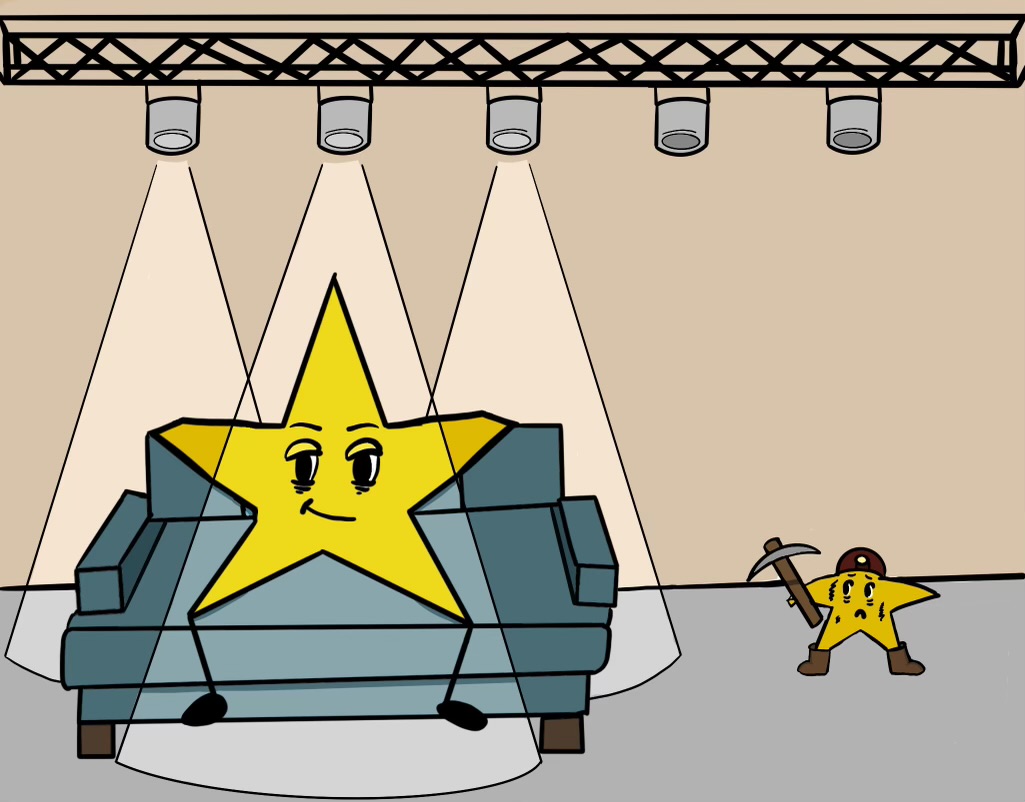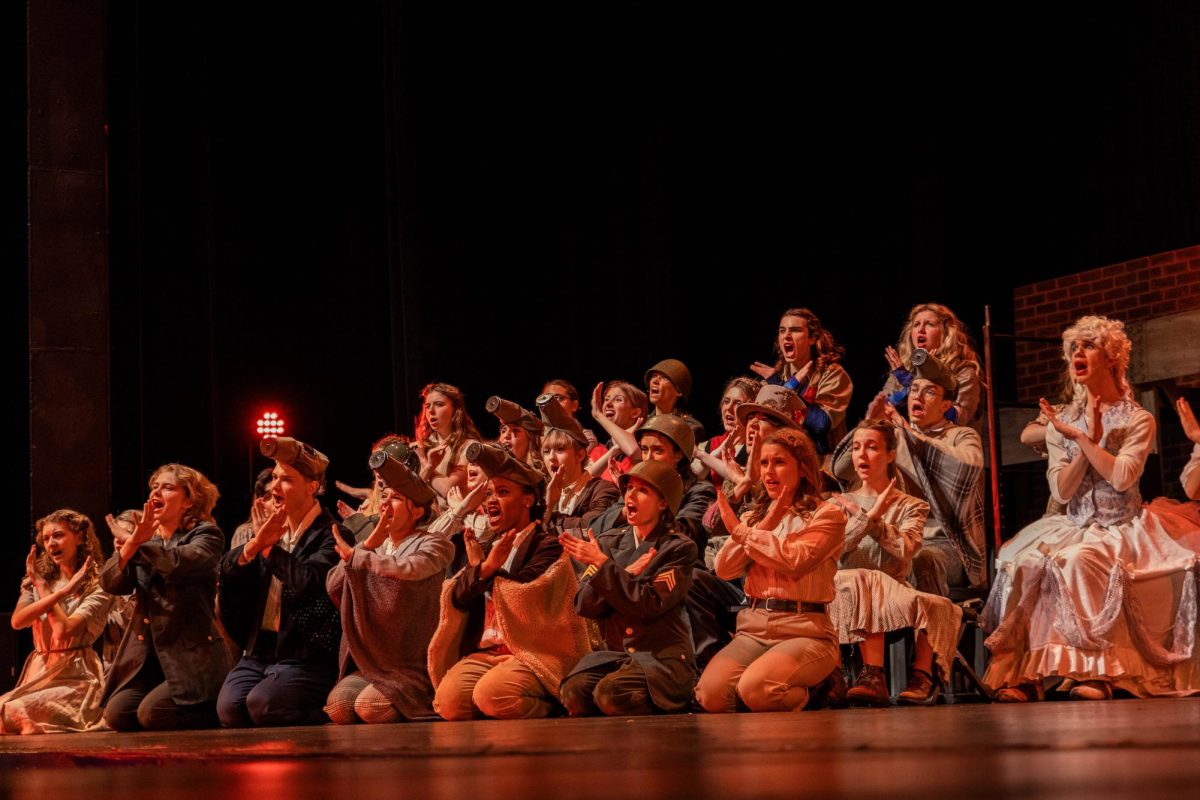Yorgos Lanthimos’s most recent black comedy film “Poor Things” is an enrapturing tale of self-exploration that challenges viewers to relearn their conceptions of society from outside of the box. “Poor Things” follows Bella Baxter (Emma Stone), the science project of surgeon Godwin Baxter (Willem Dafoe), aptly called “God.” Bella is God’s creation, a Frankenstein-esque monster crafted from the body of a suicide victim and the brain of the unborn baby she carried.
The first quarter of the film is in black and white, underscoring the drab prison of God’s house and Bella’s mundane life. God’s backstory is as dark as Bella’s, as it’s revealed that his father experimented on him, leading him to look “monstrous” and live life afraid of stepping outside his home. Because of his trauma, God believes he must approach everything scientifically, developing a wide range of fantastical experiments culminating with Bella. As Bella’s mind develops, she spends her days caring for God’s other unusual creations (such as pug-chicken and duck-goat hybrids), listening to stories told by God and her betrothed, medical student Max McCandles (Ramy Youssef), and playing with maps and eventually, herself.
If you didn’t already think the film’s concept wasn’t a jump off the deep end, you will now. Bella begins to approach her sexuality in a hedonistic manner that is deeply liberating due to its freedom from any societal norms. Yet, her activities are disconcerting for the constant reminder that although she has the body of a grown woman, Bella is a child. Nuance comes in the form of Bella’s shallow understanding of intimacy as a place of happiness and the naive way she characterizes her first sexual encounters, but the entire situation does not carry enough weight to effectively critique anything without feeling disturbing.
As her intelligence develops, Bella yearns to experience the wonders outside of her home, even with the stories God spins to dissuade her from doing so. She flees against the will of God and Max with lawyer Duncan Wedderburn (Mark Ruffalo) as she yearns for more out of her life. Duncan takes Bella on a tour of the world––and the bedroom.
The film shifts to an explosion of color as it takes an erotic turn with Bella’s thirst for exploration through her love of food, music, and sex. Each encounter Bella has with other characters molds a part of her growing brain and teaches her some lesson, whether it be about her money and class or the realities of sex work and the standards women are held to while forced to embrace the whims of men. She is introduced to socialism, and while arguing with Duncan in the streets of Paris over her sex work, she retorts “We own our own means of production!”
Stone is up for Actress in a Leading Role at the 2024 Oscars for her role as Bella. She excellently portrays how Bella’s mind grows into her body. As a child and her own mother, Bella develops rapidly and effectively branches away from the vines of society, allowing her to respond freely and express her emotions shamelessly. From Bella’s gangly doll-like mannerisms at the beginning of the film, Stone is able to refine Bella’s character as she experiences her first emotions and eventually transforms into a headstrong woman passionate about bringing some change to the world.
Ruffalo is also up for Actor in a Supporting Role for his ability to effectively balance humor and creepiness while playing the himbo-predator Duncan. The character is pompous and thrives on being the first to indulge in Bella’s sexual desires but brings some of the film’s most hilarious scenes.
To capture the brilliance of these actors, “Poor Things” takes on fellow Oscar nominee and cinematographer Robbie Ryan, whose unforgettable shots embody how Bella sees the world––with bright eyes and swelling curiosity. The film plays with a variety of wide-angle lenses and low-angled shots, even making the risky move of using a fish-eye lens and vignette to fully immerse viewers into Bella’s jejune mind while also forcing them into the role of the surveiler.
The worldbuilding and design of “Poor Things” are just as mesmerizing, initially feeling Victorian until you see the grand and mystical lands that Bella visits. Cities such as Lisbon, Alexandria, and Paris are completely unlike their real-world counterparts. The landscapes are of a child’s first time outside of the home, dotted with planet-like hot air balloons and steampunk aerial lifts. Nothing about the vibrant colors and surreal watercolor skies feels artificial, serving only to encapsulate the way Bella is experiencing the world with newfound interest.
“Poor Things” satirizes the unsettling contradictions of being a woman in society through Bella’s unbound nature, though there are moments where it seems to turn exactly into what it critiques, especially when the entire second act feeds fortune cookie lines of vague advice in place of creating meaningful dialogue. Still, the movie successfully delivers the message of embracing the whimsical, giving a glimpse into what it would be like to be reborn. Bella is not her mother nor her daughter, but rather a collection of the people she meets as her mind matures into the witty and thriving woman at the end of the film.

